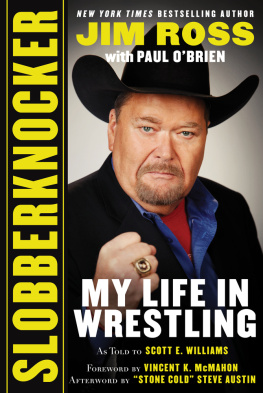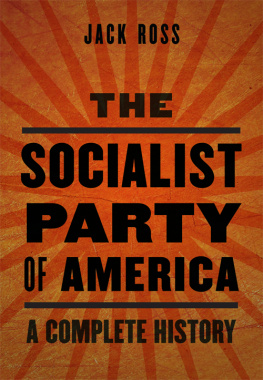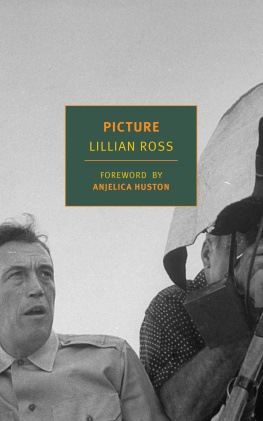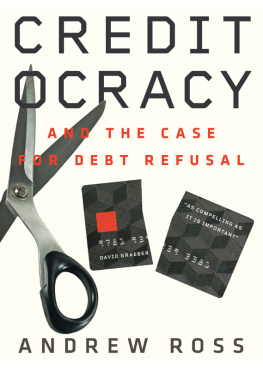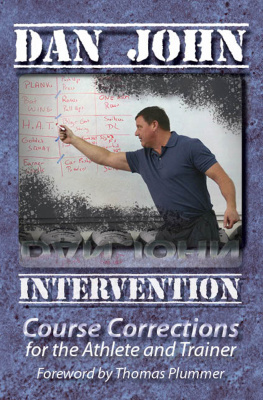

First edition published by Prentice Hall in 2007, titled Special Problems in Corrections
Second edition published in Great Britain in 2016 by
Policy Press University of Bristol 1-9 Old Park Hill Bristol BS2 8BB UK Tel +44 (0)117 954 5940 e-mail
North American office: Policy Press c/o The University of Chicago Press 1427 East 60th Street Chicago, IL 60637, USA t: +1 773 702 7700 f: +1 773-702-9756 e:
Policy Press 2016
British Library Cataloguing in Publication Data
A catalogue record for this book is available from the British Library.
Library of Congress Cataloging-in-Publication Data
A catalog record for this book has been requested.
ISBN 978-1-4473-1873-6 paperback
ISBN 978-1-4473-1872-9 hardcover
ISBN 978-1-4473-1875-0 ePub
ISBN 978-1-4473-1876-7 Mobi
ISBN 978-1-4473-1881-1 ePdf
The right of Jeffrey Ian Ross to be identified as author of this work has been asserted by him in accordance with the 1988 Copyright, Designs and Patents Act.
All rights reserved: no part of this publication may be reproduced, stored in a retrieval system, or transmitted in any form or by any means, electronic, mechanical, photocopying, recording, or otherwise without the prior permission of Policy Press.
The statements and opinions contained within this publication are solely those of the author and not of The University of Bristol or Policy Press. The University of Bristol and Policy Press disclaim responsibility for any injury to persons or property resulting from any material published in this publication.
Policy Press works to counter discrimination on grounds of gender, race, disability, age and sexuality.
Cover design by Andrew Corbett
Front cover: image kindly supplied by istock
Readers Guide
This book has been optimised for PDA.
Tables may have been presented to accommodate this devices limitations.
Image presentation is limited by this devices limitations.
To Mark J. Rochon, Michele A. Roberts, William P. Barry, and all the other criminal defense lawyers and public defenders who, on a daily basis, struggle to protect the rights of defendants against overzealous prosecutors, district attorneys, judges, and juries.
Contents
Jeffrey Ian Ross, Ph.D., is a Professor in the School of Criminal Justice, College of Public Affairs, and a Research Fellow of the Center for International and Comparative Law and the Schaefer Center for Public Policy at the University of Baltimore, USA.
He has researched, written, and lectured primarily on corrections, policing, political crime, violence, abnormal-extreme criminal behavior, urban subcultures, and crime and justice in American Indian communities for over two decades. Rosss work has appeared in many academic journals and books, as well as popular media. He is the author, co-author, editor, or co-editor of several books including: Behind Bars: Surviving Prison ; Convict Criminology ; Special Problems in Corrections ; Beyond Bars: Rejoining Society After Prison ; and The Globalization of Supermax Prisons .
Ross is a respected subject matter expert for local, regional, national, and international news media. He has made live appearances on CNN, CNBC, Fox News Network, MSNBC, and NBC. Additionally Ross has written op-eds for the The (Baltimore) Sun , the Baltimore Examiner , Inside Higher Ed , The (Maryland) Daily Record , The Gazette (weekly community newspaper serving Marylands Montgomery, Frederick, Prince Georges, and Carroll counties), The Hill , and the Tampa Tribune .
Ross has performed consulting services for CSR, Intel Science Talent Search, Maryland Department of Public Safety and Correctional Services, U.S. Department of Defense; Office of Juvenile Justice and Delinquency Prevention, U.S. Department of Justice (USDOJ); The National Institute of Justice, USDOJ; U.S. Department of Homeland Security; and Westat.
From 1995 to 1998, Ross was a Social Science Analyst with the National Institute of Justice, a Division of the USDOJ. In 2003, he was awarded the University of Baltimores Distinguished Chair in Research Award. From 2005 to 2006, Ross was a member of the Prisoner Advocate Liaison Group for the Institute of Medicine (part of the National Academy of Sciences). Ross worked for approximately four years in a correctional institution. Along with Stephen C. Richards, he is the co-founder of the Convict Criminology school, movement, organization, and network. For more information see www.jeffreyianross.com
No major project like this is done alone. To begin with, I want to thank Victoria Pittman, Senior Commissioning Editor, Rebecca Tomlinson, Senior Editorial Assistant, Laura Greaves, Production Editor, Dave Worth, Production Manager, Rebecca Megson, Marketing Coordinator, all at Policy Press, and Dawn Rushen, freelance editor/project manager. They deserve a medal for their encouragement, professionalism, and incredible patience.
I also want to thank Carolyn Fox for copy-editing the book. Additional thanks go out to Rachel Hildebrandt for editing the majority of chapters. My appreciation also extends to the anonymous reviewers of both the first and second editions. They have forced me to re-examine many of my arguments and the evidence upon which they were built.
Since this is a second edition, my gratitude extends back to those who assisted me with the first version of this book, published by Pearson/Prentice Hall. At this publishing house, I would like to thank Mayda Bosco, Frank Mortimer, and Tim Peyton for being part of the cheering section.
I would like to thank my former students, many of whom are former or current correctional, probation, or parole officers and administrators, including Ginger Duke-Miller, Alicia Peak, Abbie Redman, and Dana Valdivia, for enduring many of these chapters as lectures and/or required reading. I have also benefited from a small army of research assistants throughout the years, such as Christine Bevans, Eva Marie Keanely, Chris Brees-Rostveit, and Vickie Sneed who tireously tracked down numerous readings for me.
In the first edition, various colleagues, including Bradley Chilton, Francis (Frank) Cullen, David Curry, Ernest J. Eley, Jr., Burk Foster, Richard Hogan, Jay Hurst, Mike (Lee) Johnson, Catherine Leidemer, David Vandivier, Angela West Crews, and Miguel Zaldivar looked at selected chapters and gave me feedback.
I am also beholden to numerous colleagues who have shaped my thinking about crime, criminals, and the practice of criminal justice, not to mention corrections. These include, but are not limited to, Gregg Barak, James Conaboy, Francis T. Cullen, Jeff Ferrell, David O. Friedrichs, Rosemary Gido, Peter Grabosky, Ted Robert Gurr, Mark S. Hamm, Chris Hart, Keith Hayward, Nancy Hogan, Irving Horowitz, Mike (Lee) Johnson, Rick Jones, Victor Kappeler, Eric Lambert, Mike Lenza, Peter Manning, Shadd Maruna, Ray Michalowski, Will H. Moore, Greg Newbold, Stephen C. Richards, Dawn L. Rothe, Vincenzo Ruggiero, Marty Schwartz, Michael Stohl, Richard Tewksbury, Ken Tunnell, Austin T. Turk, Loc Wacquant, Frank (Trey) Williams, Benjamin S. Wright, Aaron Z. Winter, and Barbara Zaitzow.
My fellow Convict Criminologist colleagues, including, but not limited, to Bill Archambeault, Andy Aresti, Bruce Arrigo, James Binnall, Sacha Darke, Rod Earle, Iponwosa (Silver) O. Ekunwe, Preston Elrod, Marianne Fisher-Giorlando, John Irwin, Rick Jones, Mike Lenza, Alan Mobley, Dan Murphy, Greg Newbold, Barbara Owen, Stephen C. Richards, Chuck Terry, Grant Tietjen, Bill Tregea, Denise Woodall and Matt Yeager, should be recognized. And prison activists like Charlie and Pauline Sullivan of National CURE provided a supportive community.





